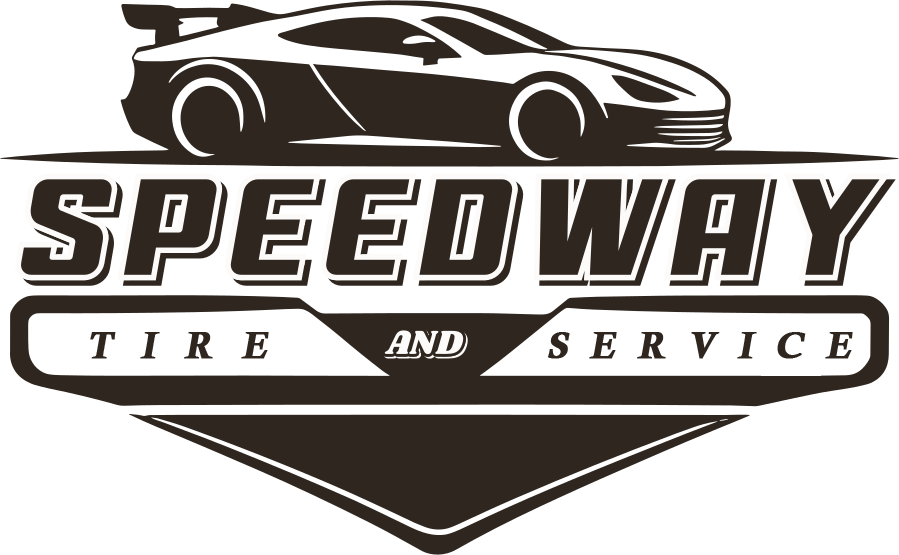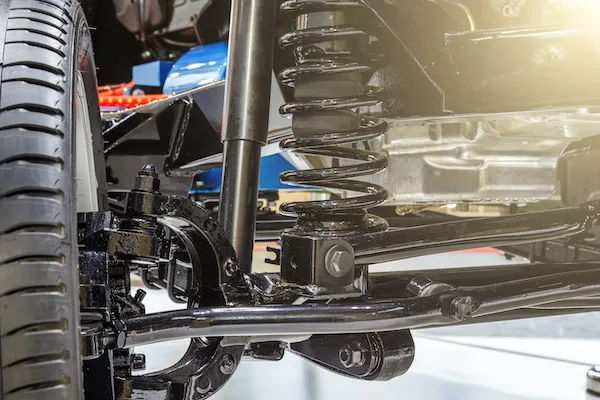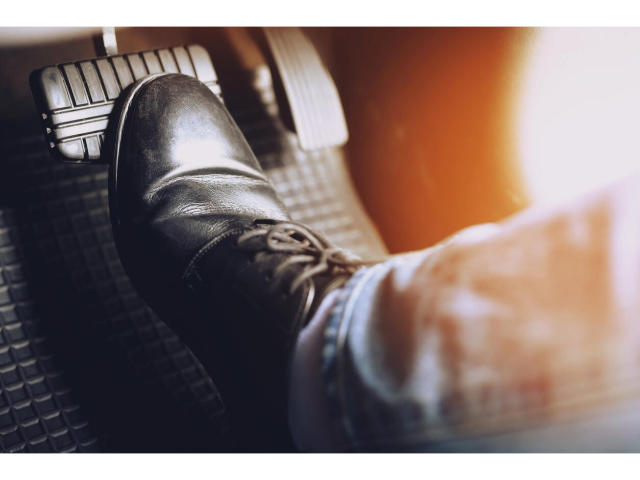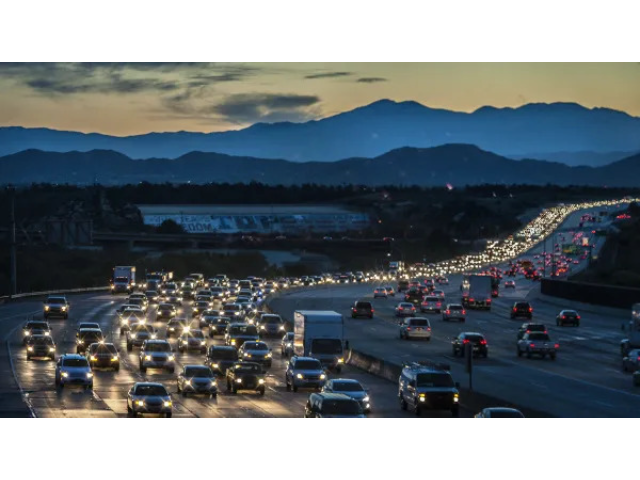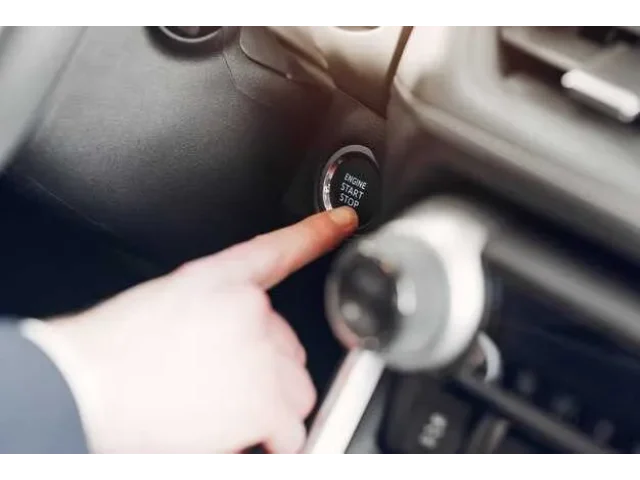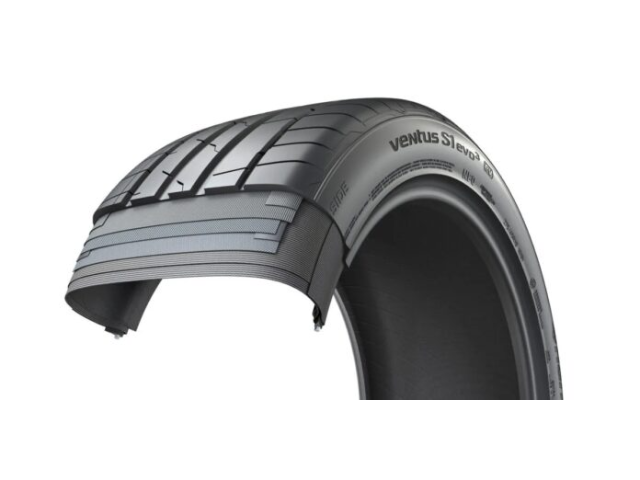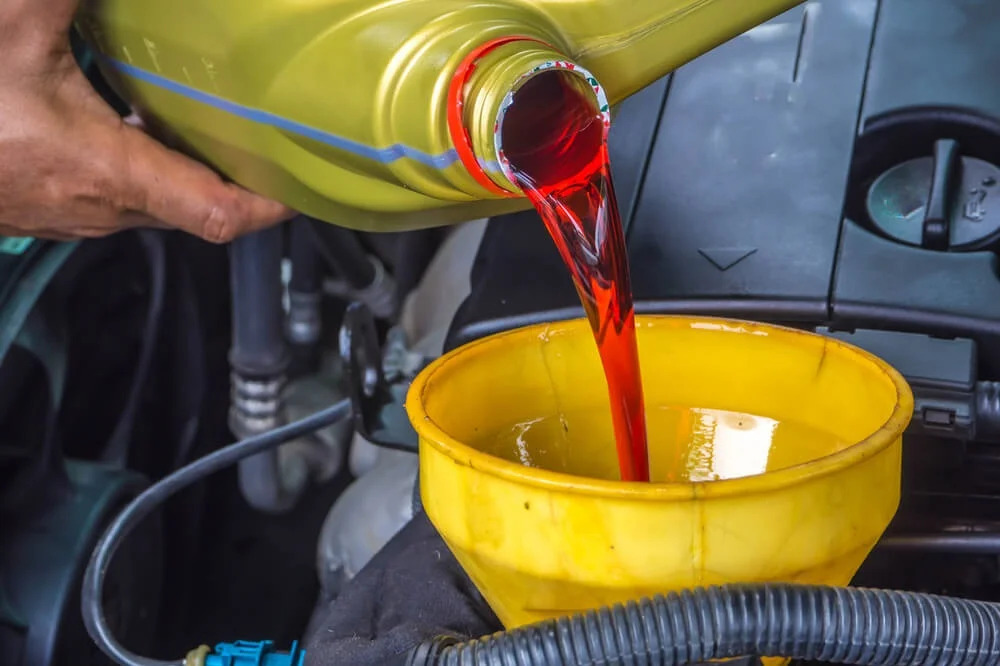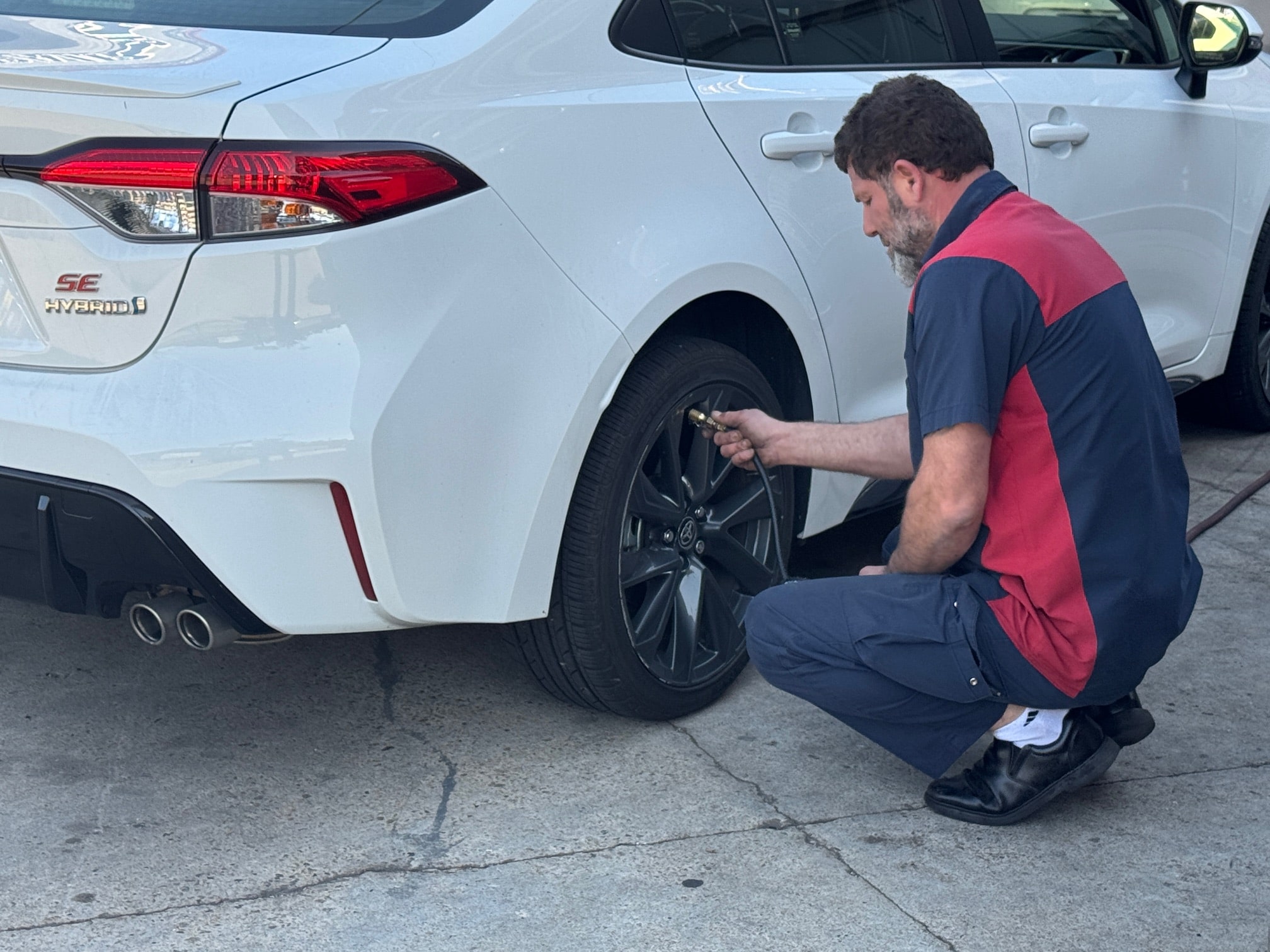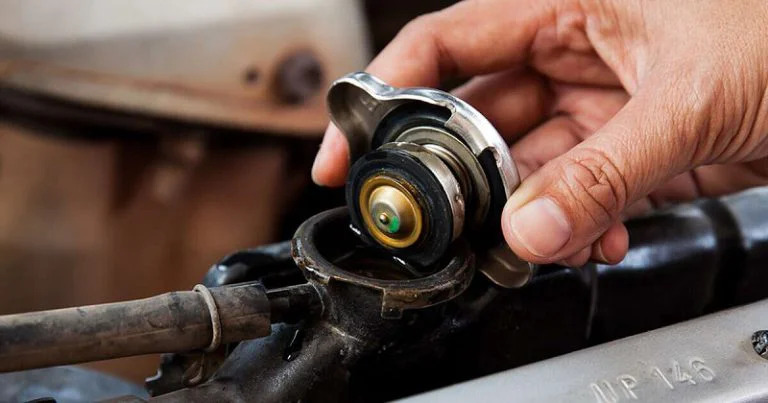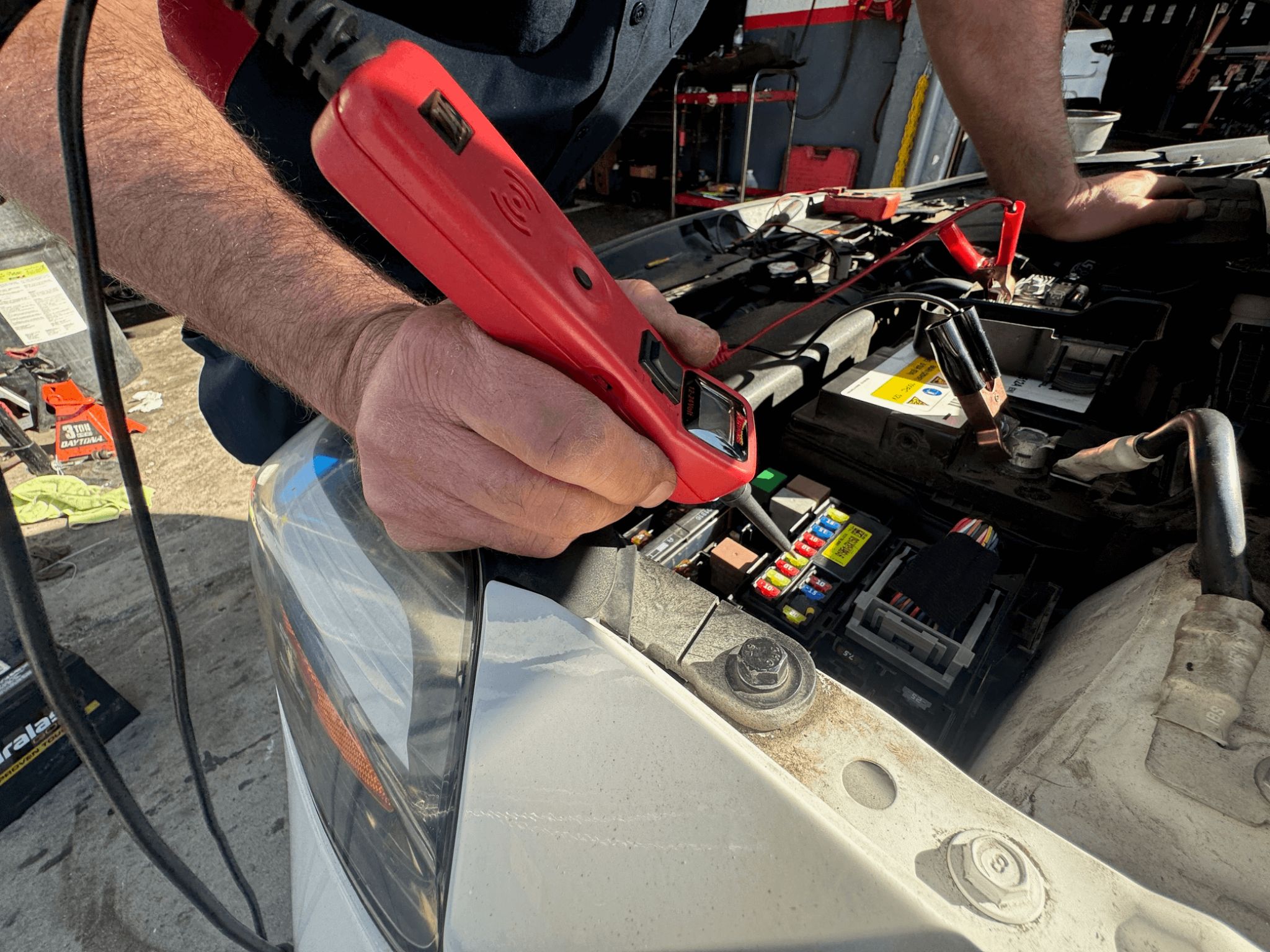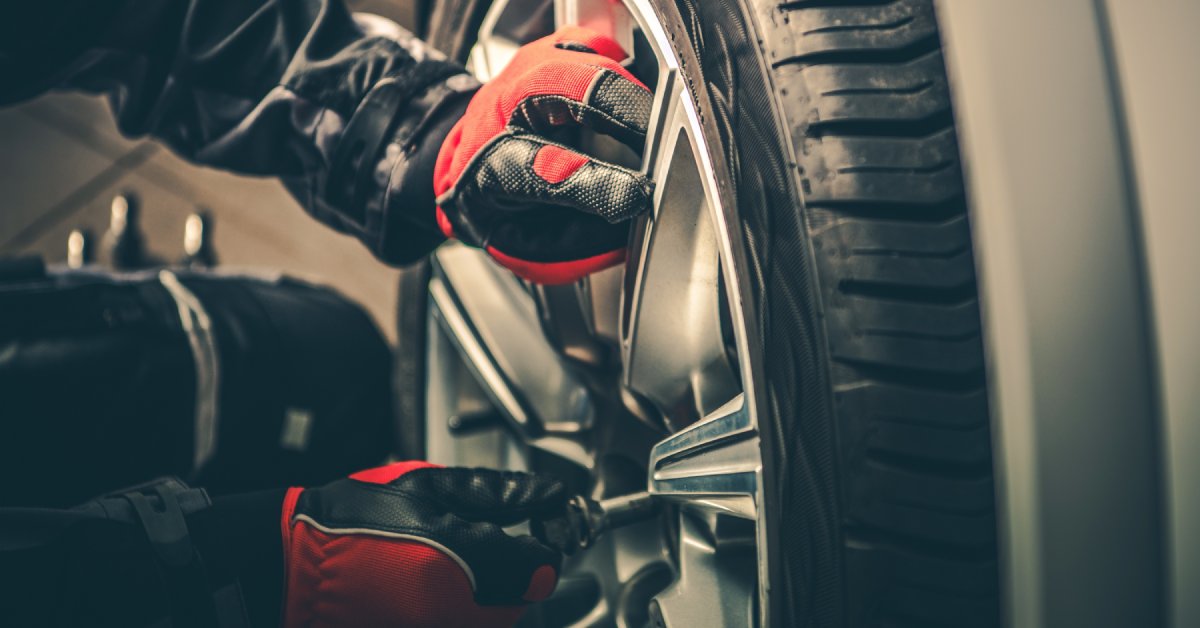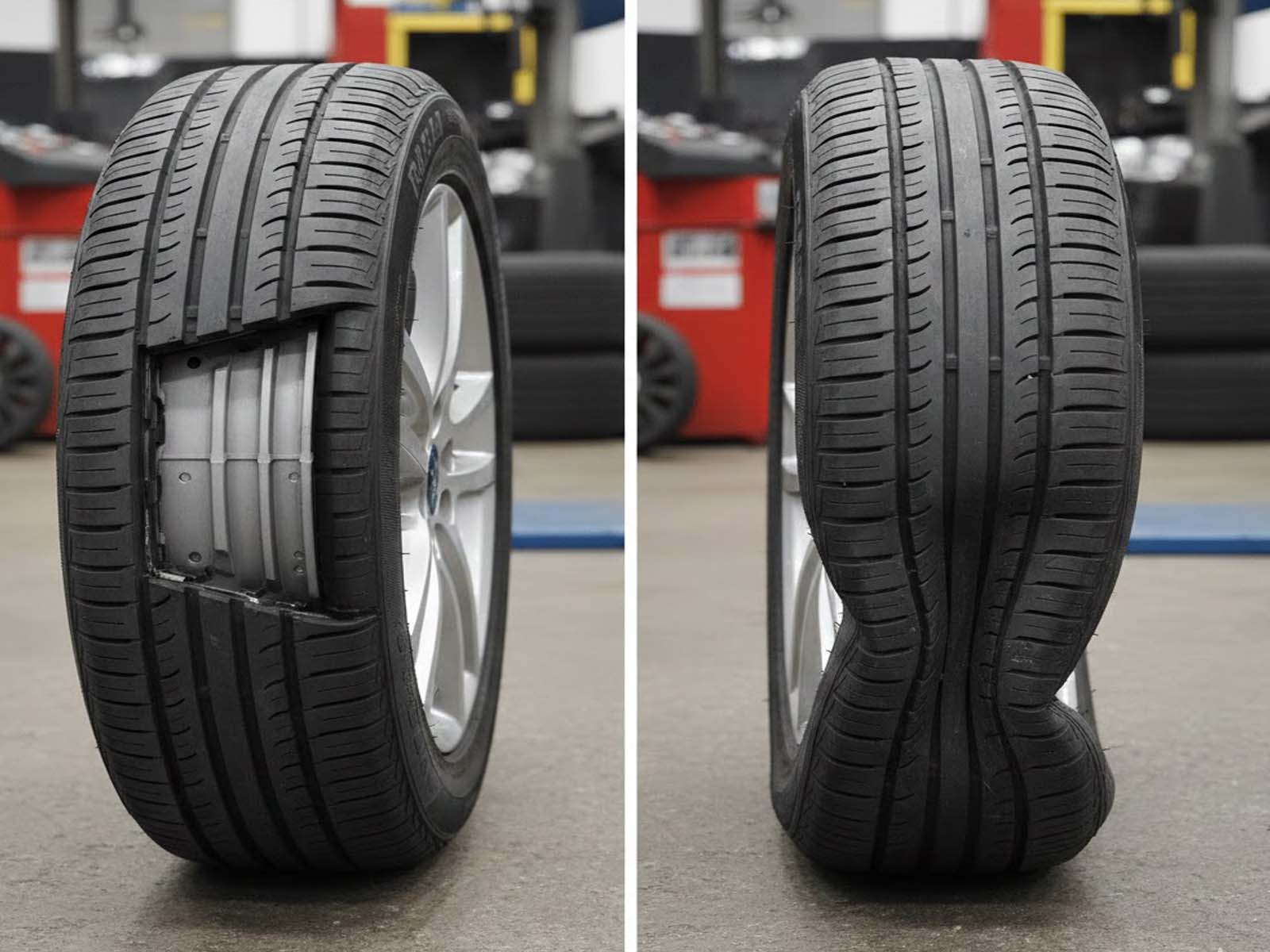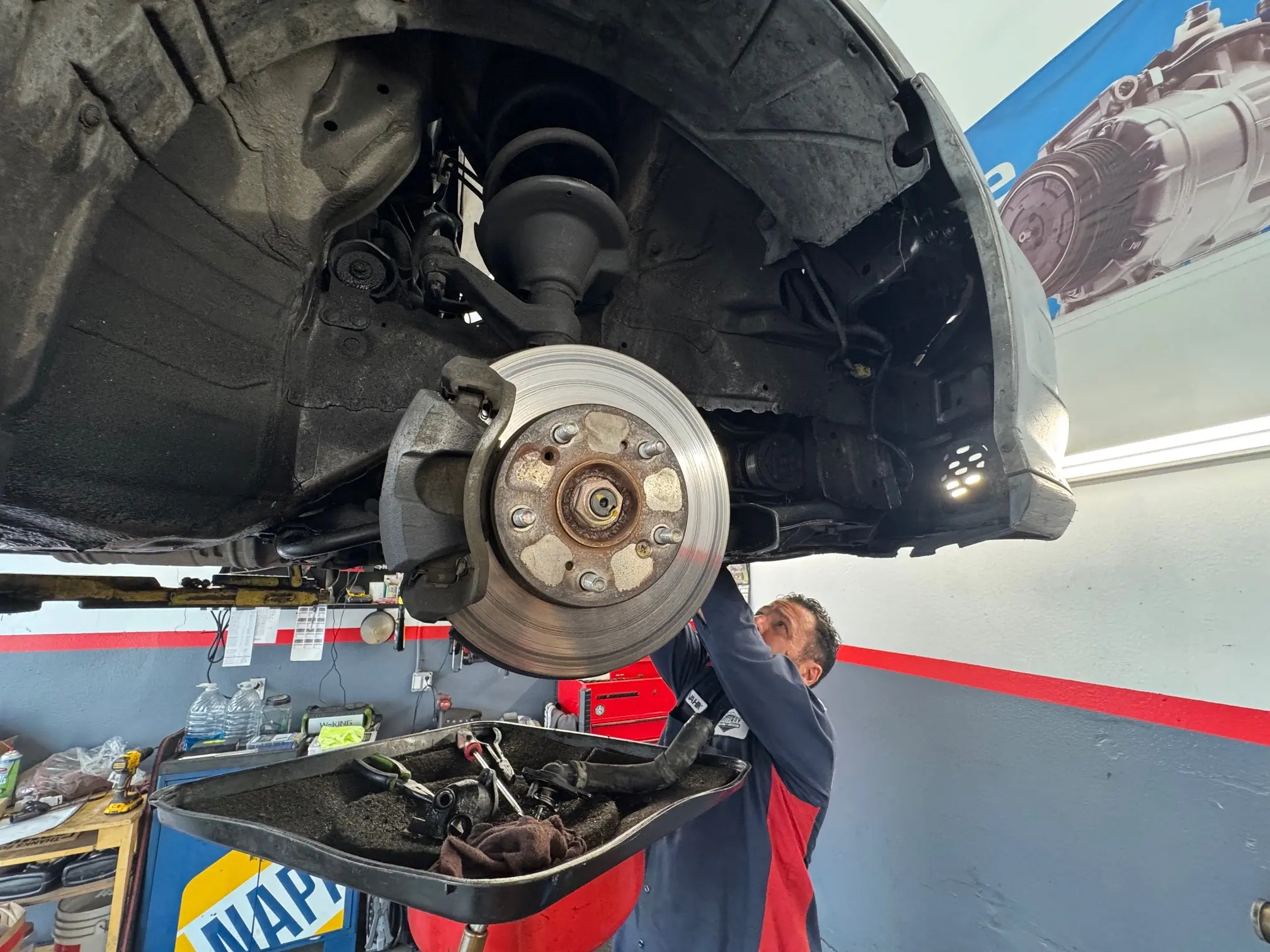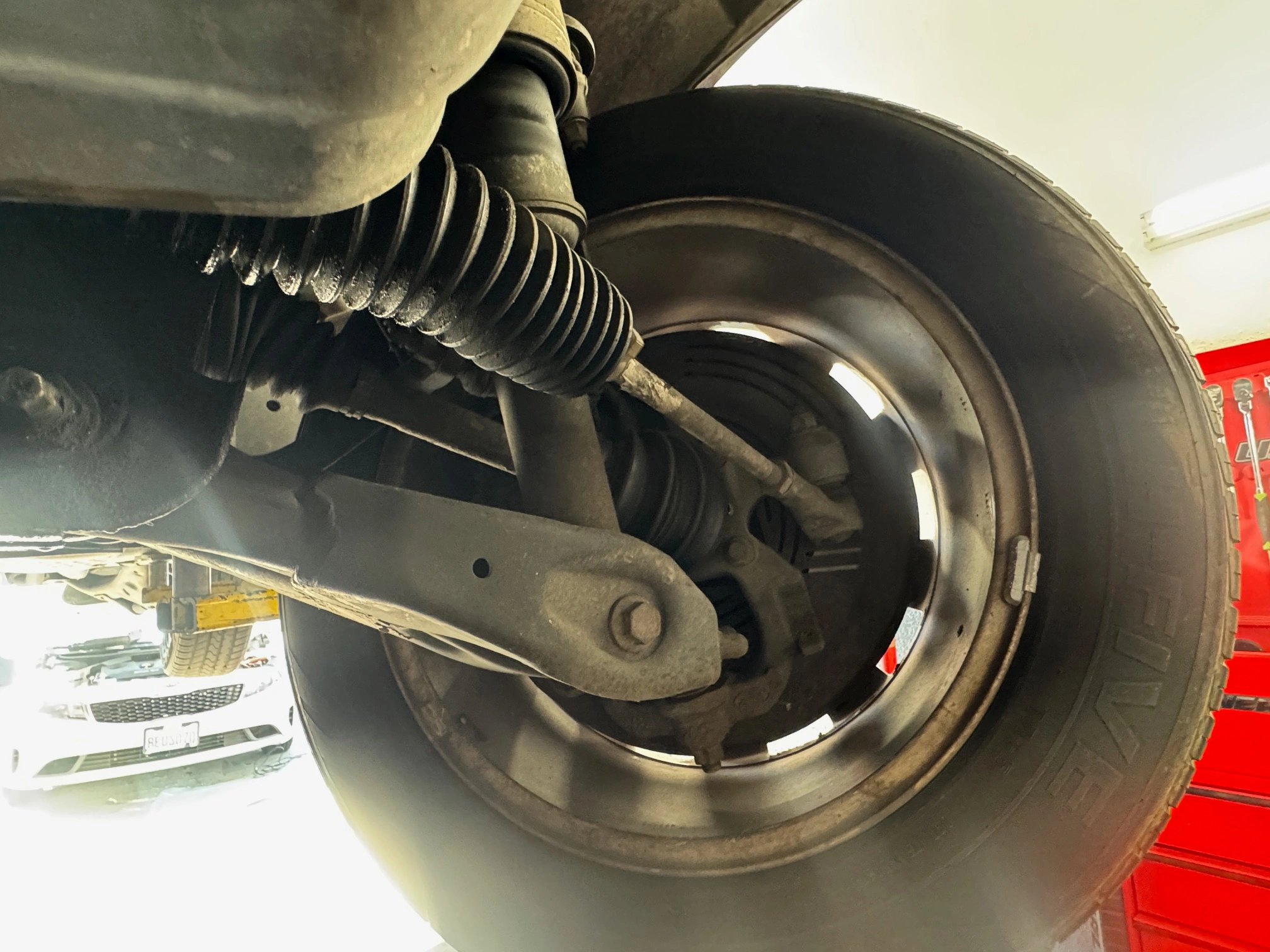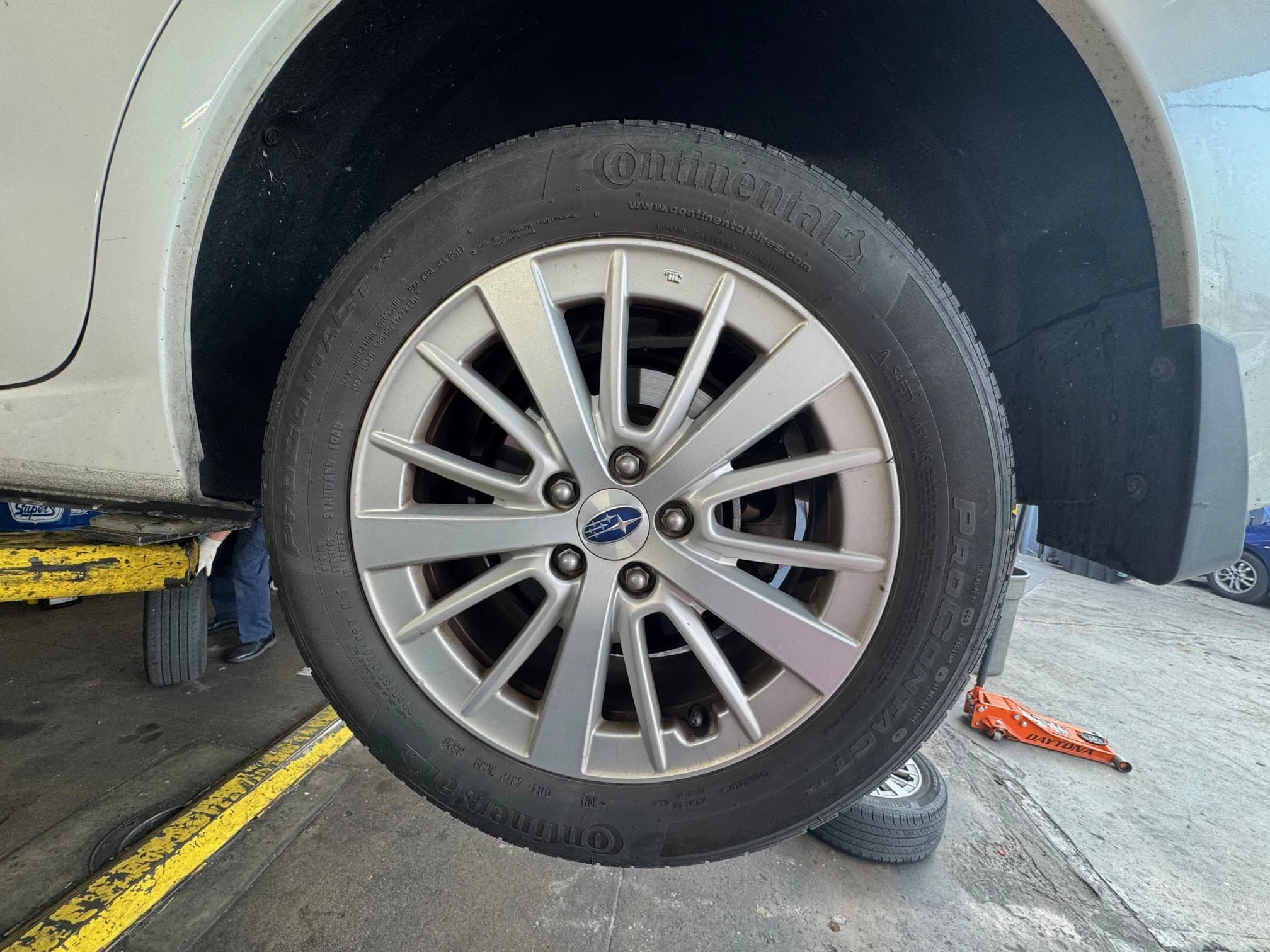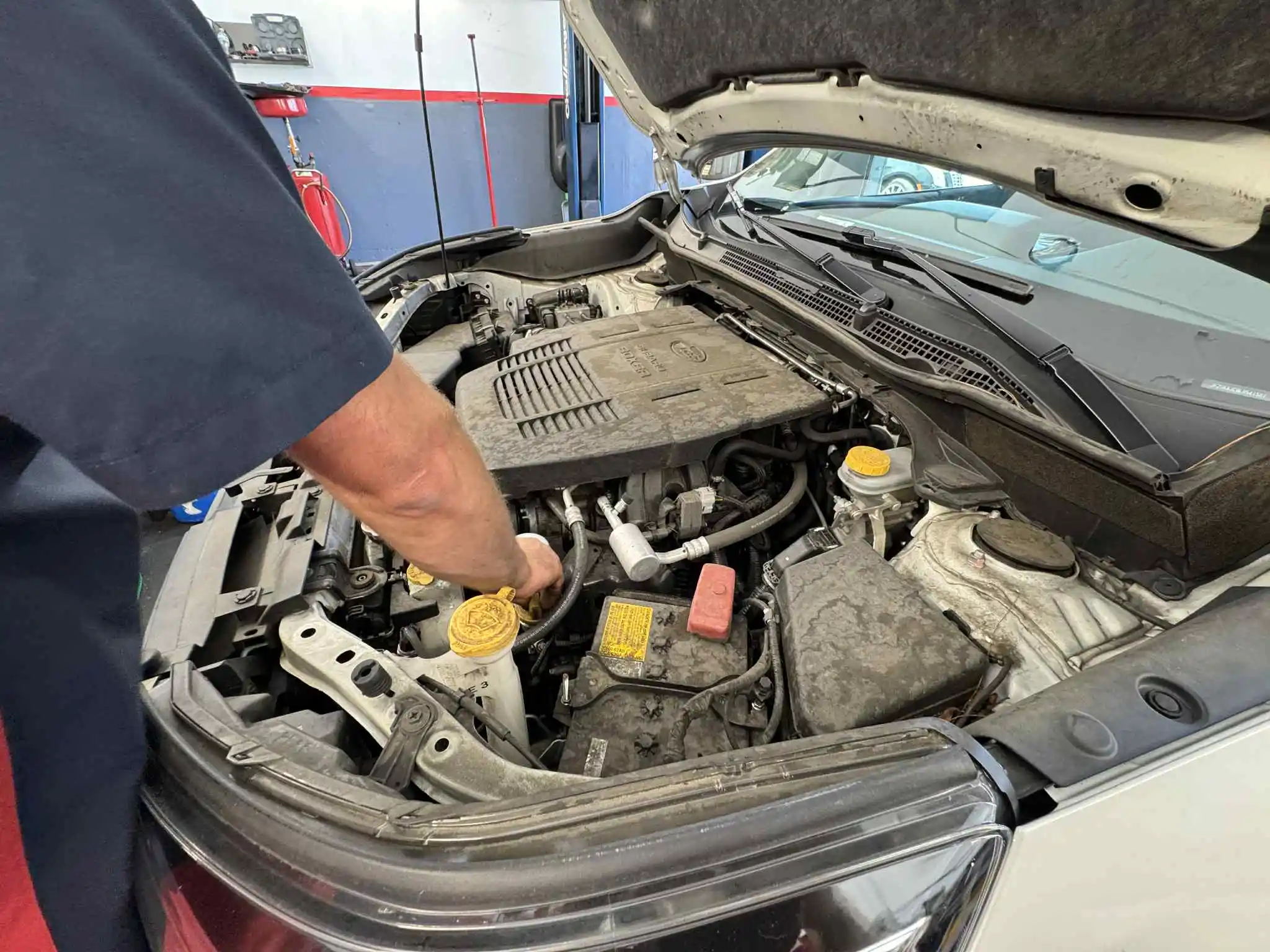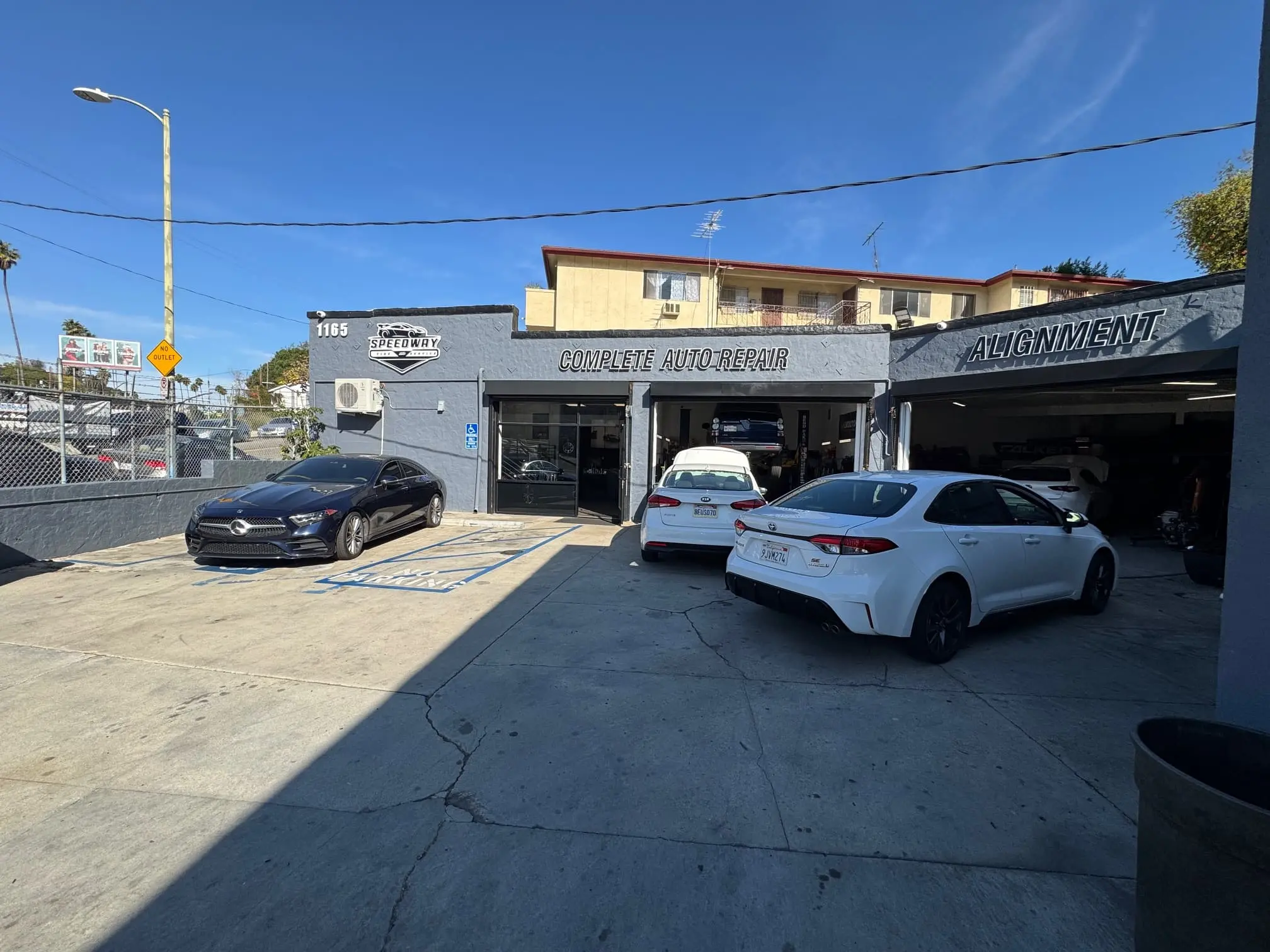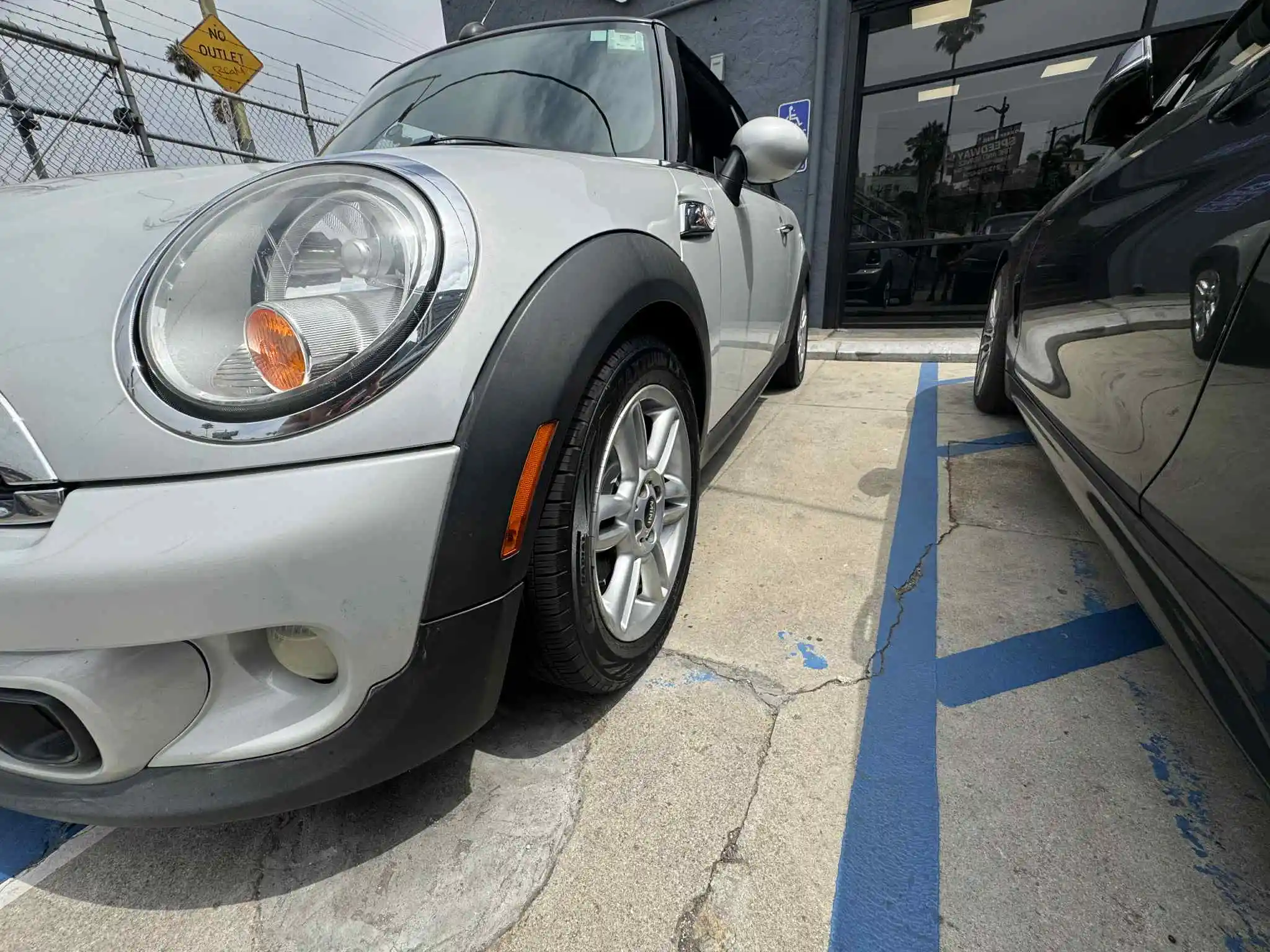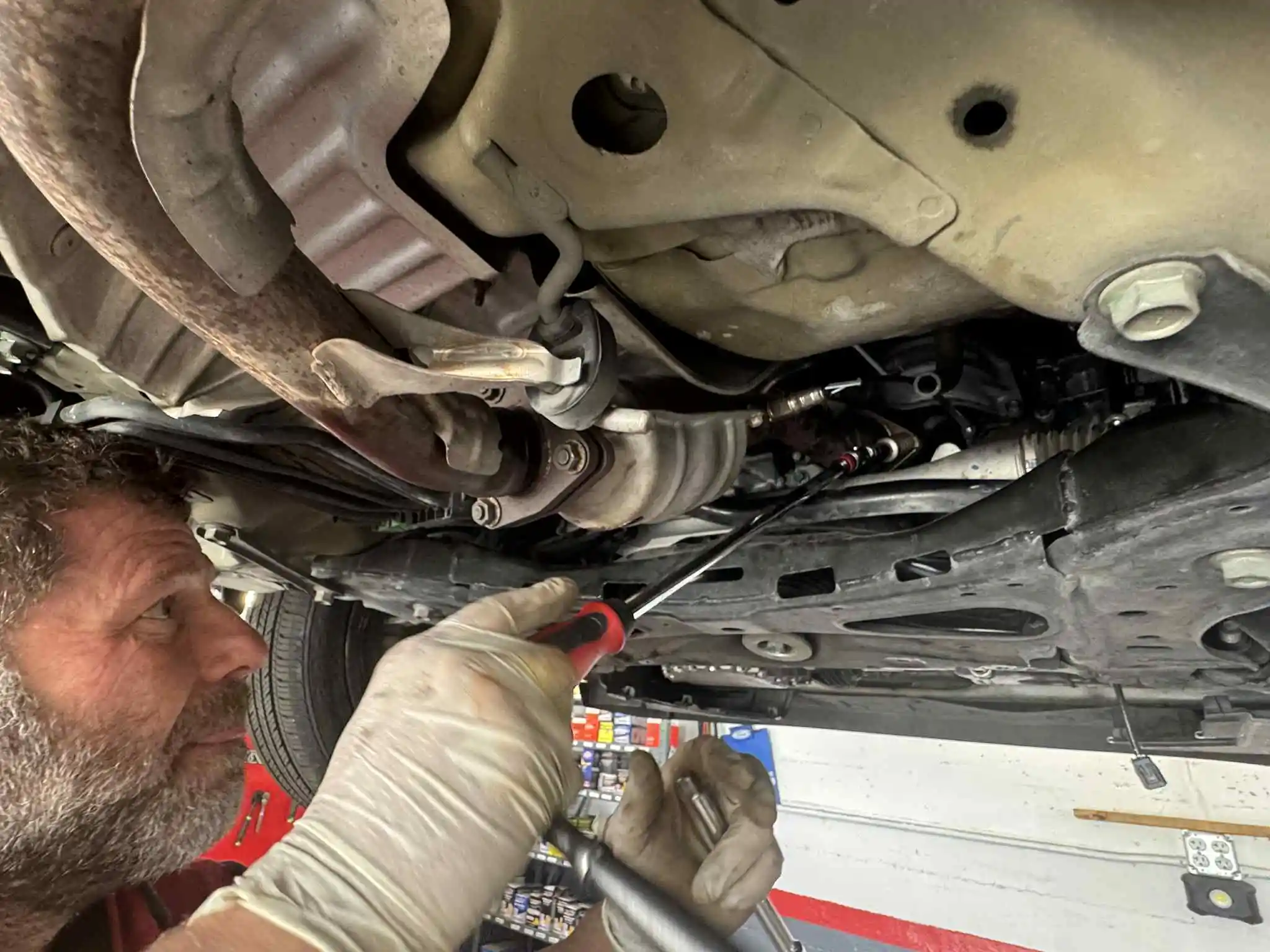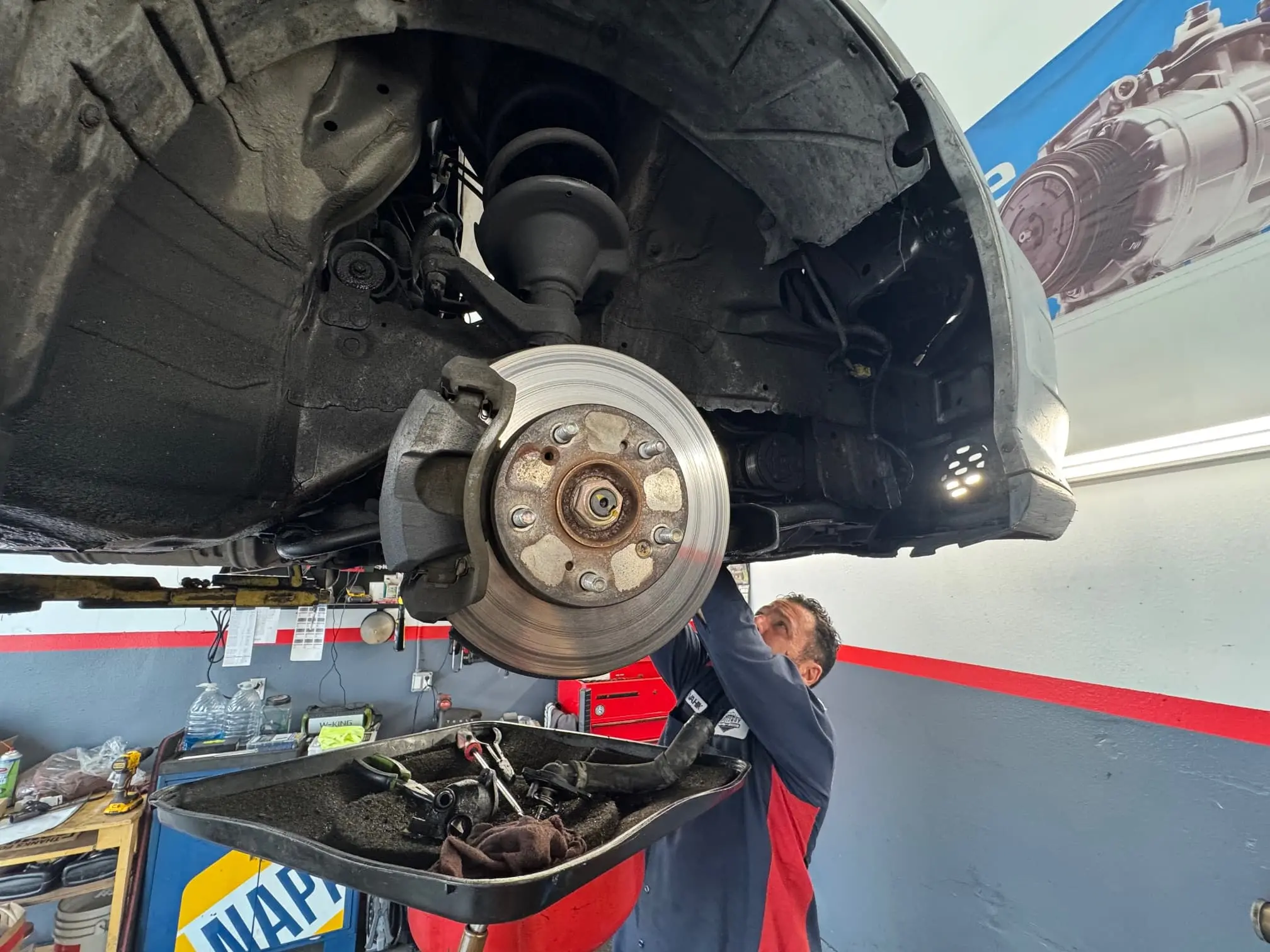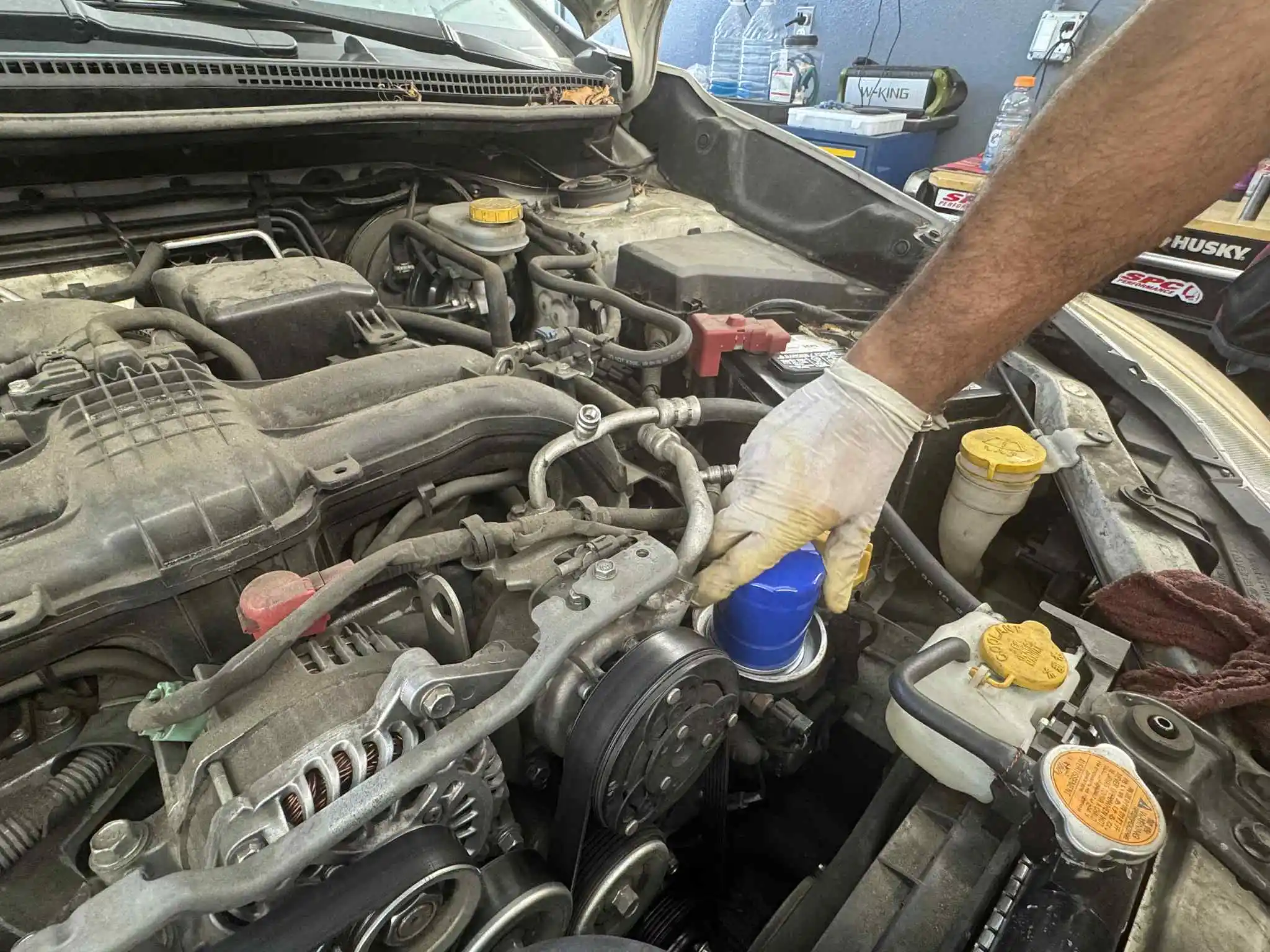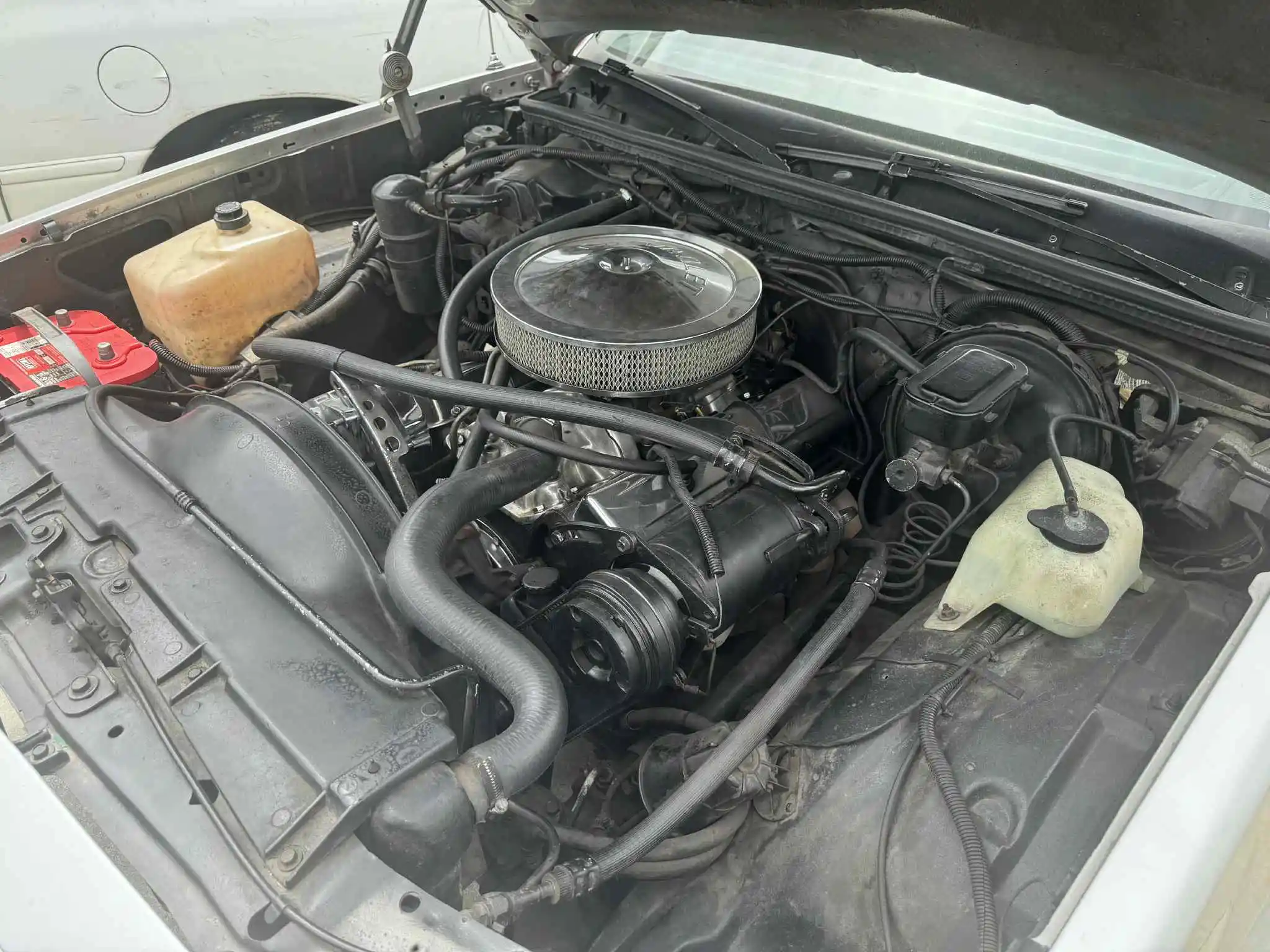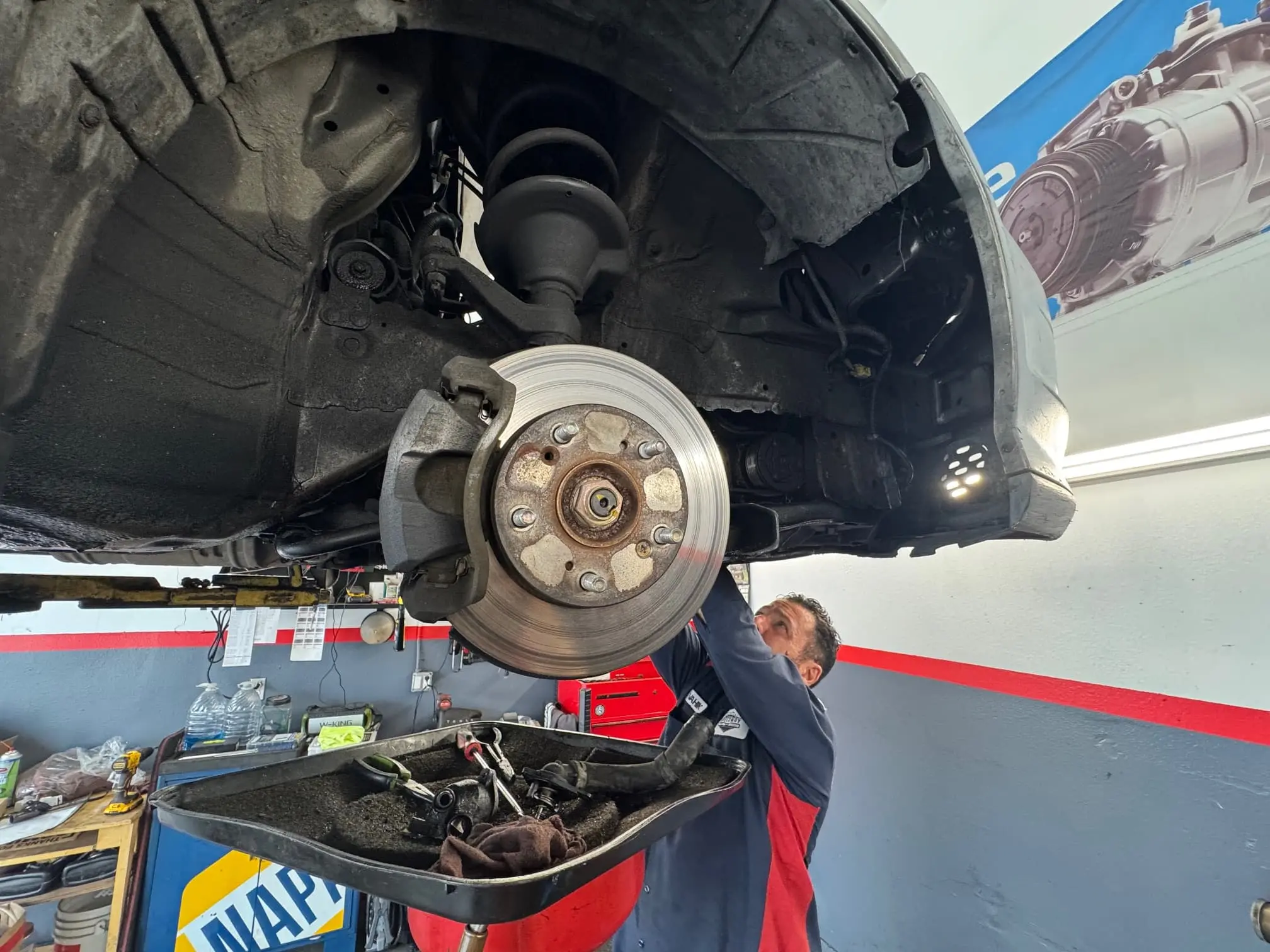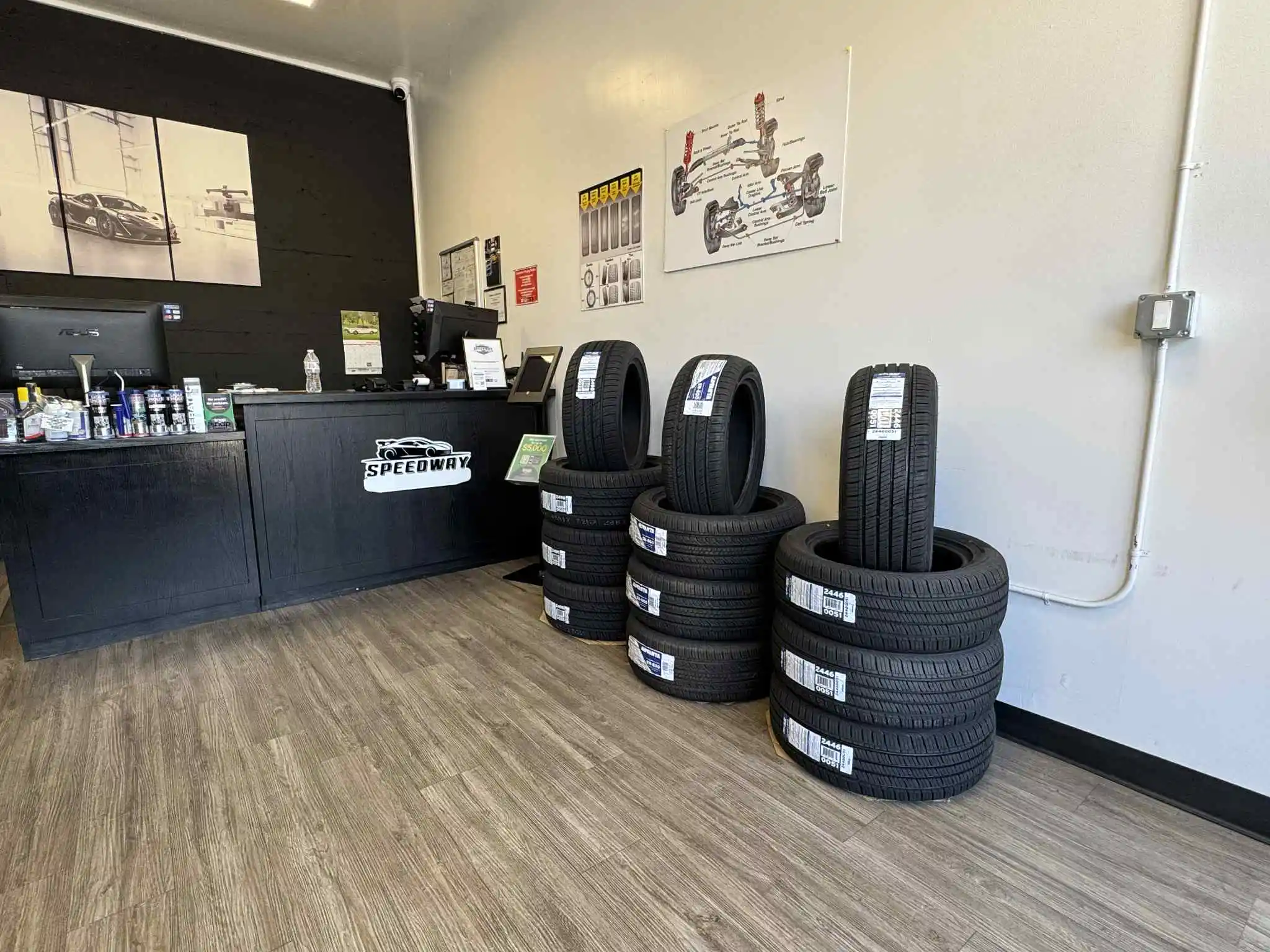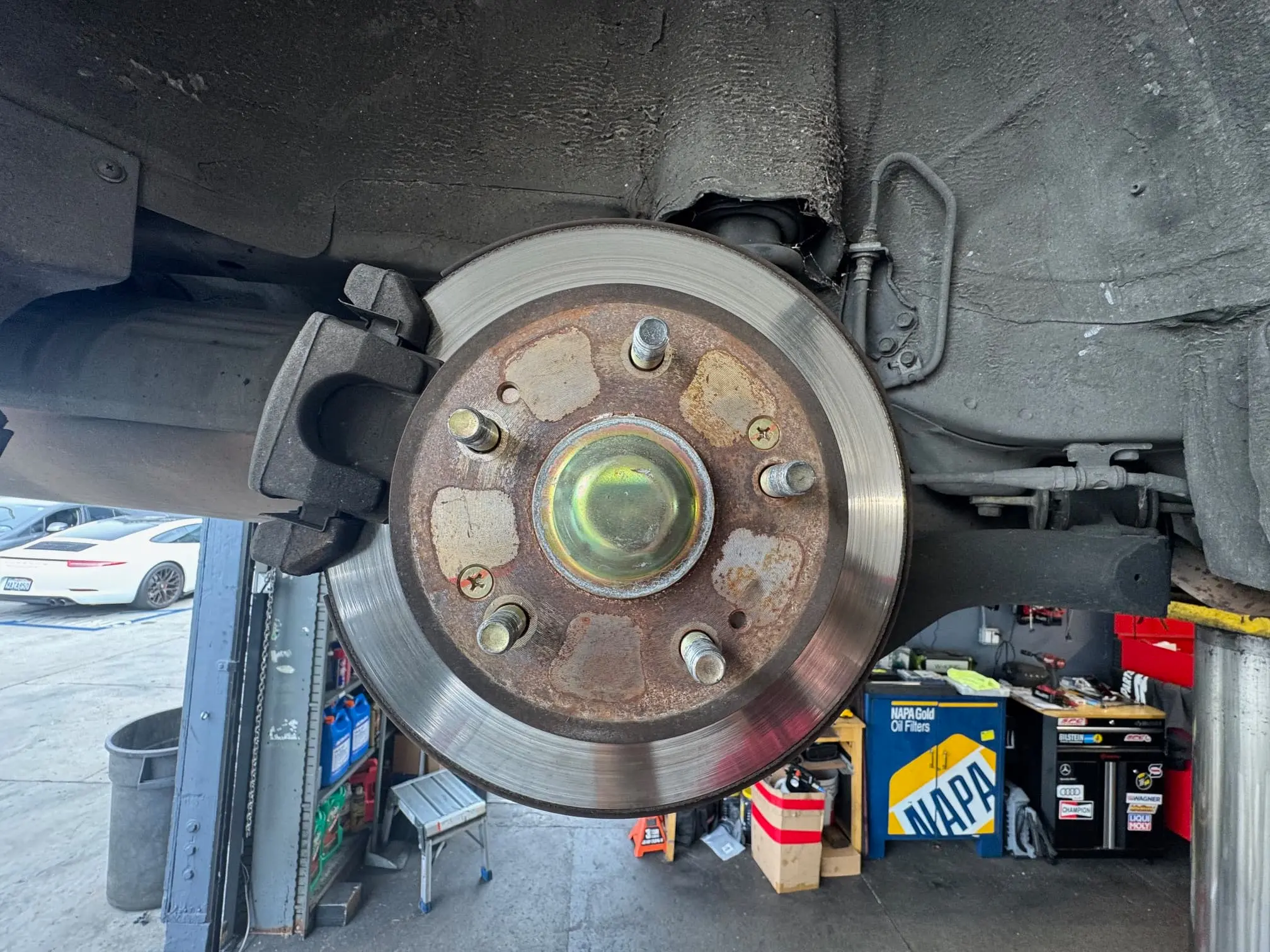Dirty Air Filter? How It Costs You Money in Downtown LA Traffic
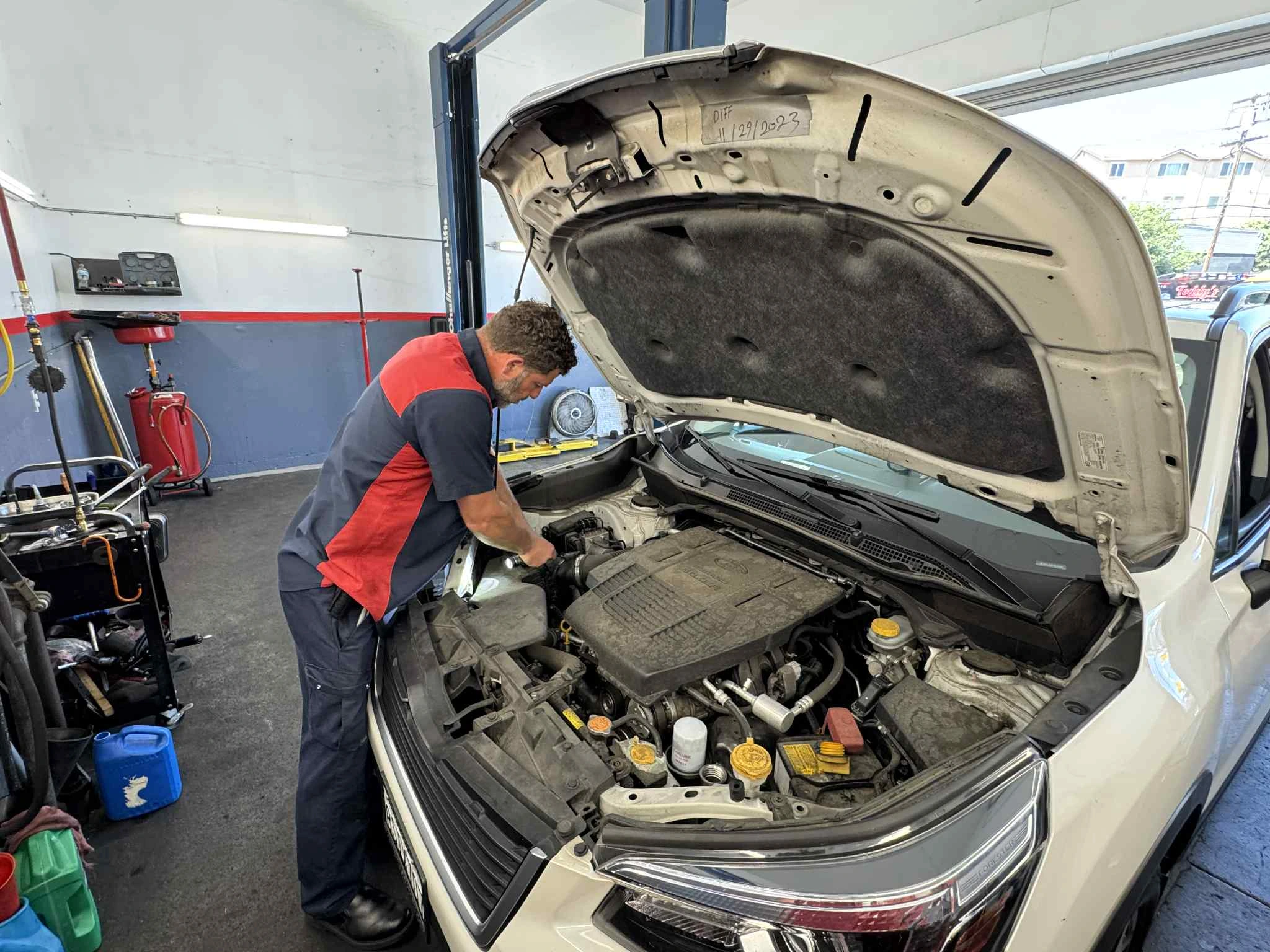
You're stuck in traffic on the 110, crawling toward Downtown LA at a frustrating 15 miles per hour. Your engine feels sluggish. Your gas gauge seems to drop faster than it should. You might blame LA's infamous congestion, but there's another culprit that many drivers overlook: a dirty air filter.
Your car's air filter is one of the most overlooked maintenance items, yet it plays a critical role in your vehicle's performance and efficiency. In the dusty, polluted environment of Los Angeles—especially in high-traffic areas like Downtown—air filters get dirty fast. Understanding the air filter replacement benefits can save you money, improve your driving experience, and extend your engine's life.
What Does Your Air Filter Actually Do?
Think of your engine's air filter as its lungs. Just as you need clean air to breathe efficiently, your engine needs clean air to run properly. The air filter's job is to trap dirt, dust, pollen, and debris before they enter the engine's combustion chamber.
Your engine requires a precise mixture of air and fuel to operate efficiently. In fact, for every gallon of gasoline burned, your engine needs approximately 10,000 gallons of air. That's a massive volume of air flowing through your filter, and in LA's dusty, smoggy environment, that air carries a lot of contaminants.
A clean air filter allows unrestricted airflow while blocking harmful particles. A dirty, clogged filter restricts airflow, forcing your engine to work harder and compromising performance.
The Real Cost of a Dirty Air Filter in LA
Los Angeles presents unique challenges for air filters. The combination of traffic congestion, construction dust, wildfire smoke (during fire season), and general urban pollution means LA air filters work overtime compared to vehicles in cleaner environments.
Impact on Engine Performance
According to a comprehensive study by Oak Ridge National Laboratory conducted for the U.S. Department of Energy, a clogged air filter significantly impacts engine performance. The research found that vehicles with dirty air filters experienced acceleration time increases of 6% to 11% compared to vehicles with clean filters.
What does this mean in real-world driving? When you need to merge onto the freeway, accelerate to pass a slow vehicle, or climb one of LA's many hills, your car will feel noticeably more sluggish. That hesitation isn't just annoying—it can be dangerous when you need quick acceleration to navigate traffic safely.
The performance loss is particularly noticeable in stop-and-go traffic, which is exactly what Downtown LA drivers face daily. Every time you accelerate from a stop, your engine is working harder than it should, creating a frustrating driving experience.
The Fuel Economy Question: Separating Fact from Fiction
There's a lot of confusion about whether a dirty air filter affects fuel economy. The truth depends on your vehicle's age and engine type.
For Modern Vehicles (1990s and newer): The Oak Ridge National Laboratory study found that for modern computer-controlled, fuel-injected engines, a clogged air filter has minimal measurable effect on fuel economy under normal driving conditions. Modern engine computers can compensate for reduced airflow by adjusting the fuel mixture.
However—and this is important—while highway cruising might not show significant MPG loss, real-world city driving is different. When you're constantly accelerating and decelerating in Downtown LA traffic, the performance loss from a dirty filter means you're pressing the accelerator harder and longer to achieve the same acceleration. This increased throttle input does consume more fuel, even if it's not reflected in standardized testing.
For Older Vehicles (pre-1990s): If you're driving an older vehicle with a carbureted engine, the impact is much more significant. The Department of Energy study found that dirty air filters reduced fuel economy by 2% to 6% in carbureted engines. For a vehicle getting 20 MPG, that's a loss of up to 1.2 MPG—costing you real money at the pump.
The Hidden Costs
Beyond performance and fuel economy, a chronically dirty air filter creates other problems:
Increased Emissions: A restricted air filter can cause incomplete combustion, increasing harmful emissions. In California, with its strict emissions standards, this could cause you to fail a smog check, requiring costly repairs before you can renew your registration.
Engine Wear: While modern air filters are effective, an extremely dirty filter can allow contaminants to bypass and enter the engine. These particles act like sandpaper on engine components, accelerating wear and potentially leading to expensive repairs.
Air Conditioning Strain: Many drivers confuse the engine air filter with the cabin air filter, but both matter. A dirty engine air filter can indirectly affect your AC performance by reducing overall engine efficiency, making your AC system work harder in LA's summer heat.
Sensor Contamination: Some high-performance or aftermarket filters (which we'll discuss shortly) can contaminate mass airflow sensors, causing drivability issues and triggering check engine lights.
When Should You Replace Your Air Filter?
The standard recommendation is to replace your air filter every 12,000 to 15,000 miles or once a year, whichever comes first. However, Los Angeles drivers should consider more frequent replacement.
LA-Specific Factors That Accelerate Filter Contamination
Heavy Traffic: Stop-and-go driving means your engine is constantly pulling in air at low speeds, when dust and particulates are more concentrated around your vehicle.
Construction: LA is always under construction. Driving near construction sites exposes your filter to excessive dust and debris.
Wildfire Smoke: During fire season, the air quality in LA plummets. Wildfire smoke contains fine particulates that quickly clog air filters.
Desert Winds: Santa Ana winds bring dust and sand from the desert, coating everything—including your air filter—in fine particles.
Urban Pollution: The sheer density of vehicles in Downtown LA means your filter is constantly exposed to exhaust particulates and urban dust.
For drivers who frequently navigate Downtown LA or other high-traffic, high-pollution areas, inspecting your air filter every 7,500 miles and replacing it every 10,000 miles is a smart preventive measure.
How to Check Your Air Filter
You don't need to be a mechanic to check your air filter. Most air filters are easily accessible under the hood in a black plastic housing. Consult your owner's manual for the exact location.
Once you locate it:
1.Remove the filter (usually just a few clips or screws)
2.Hold it up to a light source
3.If you can't see light passing through it, it's too dirty
4.Look for visible dirt, debris, or discoloration
If you're unsure, any reputable service center will check it for free during an oil change. At Speedway Tire & Service, we include a complimentary air filter inspection with every maintenance service.
K&N vs. Paper: The Great Air Filter Debate
When it's time to replace your air filter, you'll face a choice: stick with a traditional paper filter or upgrade to a reusable performance filter like K&N. Each has distinct advantages and trade-offs.
Traditional Paper Filters: The Reliable Standard
Pros:
•Superior Filtration: Paper filters capture more fine particles than oiled cotton filters, providing better engine protection
•Low Cost: Typically $15-$30, making them very affordable
•No Maintenance: Simply replace and forget
•OEM Specification: Designed specifically for your vehicle
•No Sensor Risk: Won't contaminate mass airflow sensors
Cons:
•Disposable: Must be replaced regularly, creating waste
•Slightly Less Airflow: When new, they flow slightly less air than performance filters (though the difference is negligible for most drivers)
Best For: Most drivers, especially those who want hassle-free maintenance and maximum engine protection.
K&N and Other Oiled Cotton Filters: The Performance Option
Pros:
•Reusable: Can be cleaned and re-oiled, lasting up to 50,000 miles or more
•Better Airflow: The oiled cotton gauze design allows slightly more airflow
•Environmental: Reduces waste by eliminating disposable filters
•Long-Term Savings: Higher upfront cost ($50-$80) but saves money over time
Cons:
•Less Filtration: Allows more fine particles to pass through compared to paper
•Maintenance Required: Must be cleaned and re-oiled periodically (every 25,000-50,000 miles)
•Sensor Contamination Risk: Over-oiling can contaminate mass airflow sensors, causing drivability issues and check engine lights
•Not Ideal for Dusty Environments: In LA's dusty conditions, the reduced filtration may not be worth the airflow gain
Best For: Performance enthusiasts, environmentally conscious drivers, and those willing to perform periodic maintenance.
The Verdict for LA Drivers
For most Downtown LA drivers, a quality paper filter is the smart choice. The superior filtration is important in LA's dusty, polluted environment, and the convenience of simple replacement fits busy lifestyles. The performance difference between a clean paper filter and a K&N filter is minimal for street driving—you won't notice it in daily commuting.
However, if you're committed to the maintenance routine and want to reduce waste, a K&N filter can be a good long-term investment. Just be meticulous about proper cleaning and oiling procedures, and never over-oil the filter.
Air Filter Replacement: DIY or Professional?
Air filter replacement is one of the easiest maintenance tasks you can do yourself. Most vehicles require no tools beyond your hands—just pop open the air box, remove the old filter, and install the new one. It takes about five minutes.
However, there are good reasons to have it done professionally:
Comprehensive Inspection: When a technician replaces your air filter, they're also looking at the entire intake system for cracks, loose connections, or other issues that could affect performance.
Proper Fitment: While rare, it's possible to install an air filter incorrectly, creating gaps that allow unfiltered air into the engine. A professional ensures proper installation.
Convenience: If you're already at a service center for an oil change or other maintenance, having them replace the air filter saves you time and ensures it gets done.
Documentation: Professional service creates a maintenance record, which can be valuable for warranty claims or when selling your vehicle.
At Speedway Tire & Service, air filter replacement is a quick, affordable service that we can perform while you wait. We stock quality filters for most makes and models, and our technicians will show you your old filter so you can see exactly why replacement was necessary.
The Complete Air Intake System
While we're discussing air filters, it's worth mentioning that the filter is just one component of your engine's air intake system. For optimal engine performance, the entire system should be in good condition.
Intake Hoses and Tubes: These can crack or develop leaks over time, allowing unfiltered air to enter the engine. During air filter replacement, these should be visually inspected.
Mass Airflow Sensor (MAF): This sensor measures the amount of air entering the engine so the computer can adjust the fuel mixture. A dirty or contaminated MAF sensor can cause poor performance, rough idle, and reduced fuel economy. It should be cleaned periodically with specialized MAF sensor cleaner.
Throttle Body: Over time, carbon deposits can build up in the throttle body, restricting airflow. Periodic throttle body cleaning can restore performance.
PCV System: The positive crankcase ventilation system routes engine vapors back into the intake. A clogged PCV valve can affect engine performance and increase oil consumption.
A comprehensive vehicle maintenance program addresses all these components, not just the air filter, ensuring your engine breathes freely and performs at its best.
The Bottom Line: Small Investment, Big Returns
An air filter costs between $15 and $30 for most vehicles. Installation takes five minutes. Yet this simple, inexpensive maintenance item has an outsized impact on your vehicle's performance, efficiency, and longevity.
For Downtown LA drivers dealing with heavy traffic, urban pollution, and demanding driving conditions, keeping your air filter fresh is one of the smartest maintenance decisions you can make. The air filter replacement benefits include:
•Improved acceleration and throttle response (6-11% better performance)
•Maintained fuel efficiency in real-world driving
•Reduced emissions for cleaner air and easier smog checks
•Extended engine life through better filtration
•Peace of mind knowing your engine is breathing clean air
Don't let a $20 filter compromise your vehicle's performance and cost you money in reduced efficiency and potential repairs.
Keep Your Engine Breathing Easy
When was the last time you checked your air filter? If you can't remember, it's probably time. Schedule an appointment at Speedway Tire & Service, and we'll inspect your air filter and entire intake system to ensure your engine is getting the clean air it needs to perform at its best.
Whether you're commuting through Downtown LA traffic daily or just want to ensure your vehicle is properly maintained, we're here to help. Our experienced technicians can recommend the right filter for your vehicle and driving conditions, install it properly, and inspect your entire intake system—all while you wait.
Don't let a dirty air filter hold you back. Visit us today and experience the difference a fresh air filter makes in LA's challenging driving environment.
Looking for an honest Auto Repair Shop in Los Angeles? Call Speedway Tire and Service Today
Whether you’re driving through LA traffic or cruising the freeways, your car deserves expert care. Located in Los Angeles, Speedway Tire and Service offers reliable oil changes, brake repairs, tire services, and more—all backed by experienced technicians and honest pricing.
